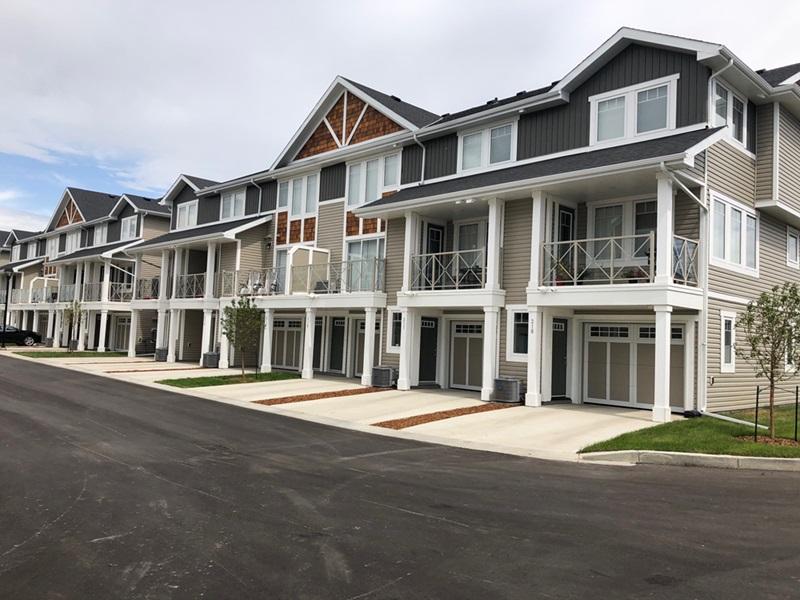
Benjamin Tal, the deputy chief economist at CIBC World Markets. (Courtesy CIBC)
Senior executives from institutional, banking and investment management firms discussed challenges and maximizing returns during the virtual RealCapital conference on March 1.
Otéra Capital executive vice-president and head of strategy and risks Jamila Ladjimi and Desjardins Capital Markets managing director and co-head of investment banking Mark Edwards moderated the four-person panel.
One of the key challenges affecting potential returns is the supply chain and attendant labour shortages.
“The No. 1 reason why we have supply issues in real estate is labour,” said CIBC managing director and deputy chief economist Benjamin Tal. “We cannot find trades, like finding a plumber. We simply don’t have the labour.”
Tal is bullish on purpose-built apartments because of the need for housing and his belief that rents will rise as residential sale prices continue to increase.
“You cannot have an affordable system without a rental solution — not condos, purpose-built,” said Tal, “and I think that’s the next wave of improvement in the market.”
Tal said 70 per cent of Canada’s 400,000 new immigrants last year were already in the country as foreign students or as non-permanent residents.
He expects that model will continue, but he would like to see more new immigrants coming to Canada who can contribute to the construction labour force.
TD Asset Management
TD Asset Management managing director and head of alternative investments Jeff Tripp is optimistic and foresees strong tailwinds fuelling an active real estate investment environment with deep investor demand this year.
He also recognized risks, however, including inflation, interest rates, geo-political events and the potential for future COVID-19 variants.
Canadian real estate was a strong performer in 2021, particularly industrial. Ontario, Quebec and British Columbia were the top markets, according to Tripp.
“We offer public and private market solutions to institutional and retail clients and investors,” said Tripp, noting his firm’s real estate investment portfolio is tactically overweight and more money is being moved into it.
“I sit on the asset allocation committee for the wealth part of TD and in that forum we debate the relative merits and contributions of different asset classes to create a diversified portfolio.”
Most people underestimated how long COVID-19 would continue to have a disruptive impact and, while some trends have accelerated — including the growth of e-commerce and demand for life sciences facilities — Tripp doesn’t believe it has caused transformational changes.
SLC Management and CI Global Asset Management
SLC Management senior managing director and deputy chief investment officer Candace Shaw said real estate was a “stellar performer” for her firm, which hasn’t allocated capital any differently due to external factors.
Direct real estate accounts for six per cent of the company’s balance sheet, but that rises to 22 per cent when real estate-related debt financing is included.
SLC has been reshaping its real estate portfolio over the past few years. Shaw said the office sector is a bit slow, though she expects downtown core properties to perform better than others.
She thinks retail may have some continuing downside due to increasing e-commerce activity.
Shaw is more bullish on industrial — particularly distribution and logistics centres and cold-storage facilities — and multiresidential.
Shaw said commercial real estate provides diversification and inflation protection as rents may be increased along with inflation. She also noted a narrowing of spreads for commercial mortgage loans and ground leases, which helped SLC’s performance.
“We have a strategic mix that we think provides a good foundation for the liabilities that we sell,” Shaw said. “And in fact, if interest rates do rise that actually can be helpful for an insurance company because we’re really looking at the relative value of assets over the liability commitments that we make, not necessarily the direction of interest rates.
“So as long as we can capture that relative value, we can maintain our profitability.”
Financial markets have remained strong during the pandemic.
CI Global Asset Management executive vice-president and head of investment management Marc-André Lewis, who joined the company six months ago after working for a Middle Eastern sovereign wealth fund for eight years, said it’s a good time for active management.
His firm offers multiple products to clients and aims to maximize returns and diversification.
Environmental, social and governance considerations
Environmental, social and governance (ESG) factors have been embedded in the investment process at CI, according to Lewis, through both internal and third-party sources.
Shaw said ESG is “extraordinarily important” to SLC and every investment and divestment decision is taken with that in mind. It also uses an internal rating system for assets on the debt side as part of its ESG strategy.
One of the biggest challenges is obtaining consistent data from different organizations for quantification purposes in helping make these decisions.
“Every single transaction that we do has a lens into how sustainable that particular asset is,” said Shaw. “We have, I think, possibly the largest private debt portfolio in Canada.
“It’s been investing in sustainable energy for years, things like wind farms and solar farms and hydro and large projects that will help the transition from a carbon environment into something that we hope is certainly more sustainable and less carbon-intensive.”
Shaw said diversity, equity and inclusion (DEI) are also taken into account, and it’s important that where there’s a First Nations presence or stakeholders that they be included in decision making and are able to benefit from real estate projects moving forward.
SLC also looks for people in senior management roles and board positions who can bring new ideas.
DEI and the environment are also important to TD Asset Management.
“We have conviction that diverse teams and a diverse culture will ultimately lead to better outcomes,” said Tripp. “That just makes good business sense.”
Tripp stressed climate change is real and needs to be addressed and his firm has set energy reduction targets.
“The move to renewables is so important and is going to require so much investment. That is a real tailwind to infrastructure. In our infrastructure fund, we do have a sizeable weighting to renewables. We’ve seen a lot of demand in that space.”











